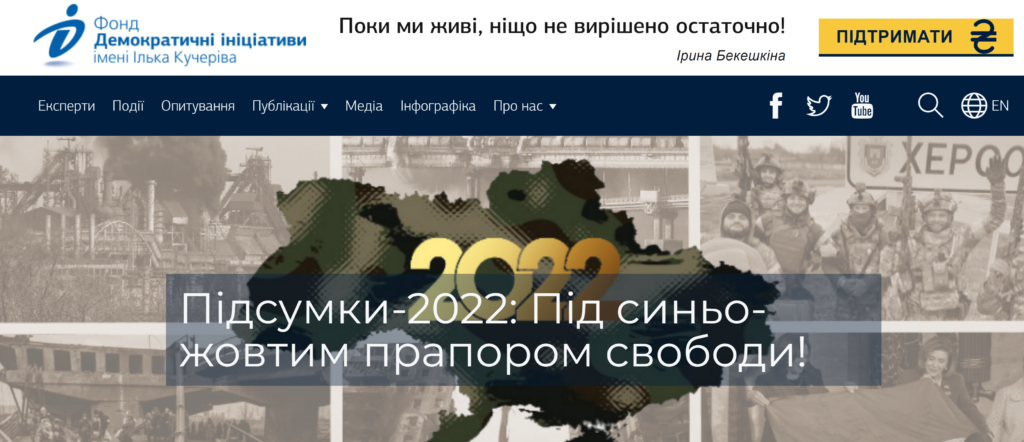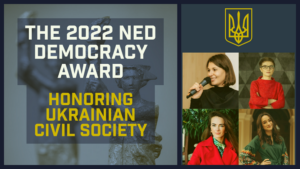Ukraine’s President Volodymyr Zelensky today addressed a joint session of the UK Parliament shortly after making a surprise trip to the UK, the BBC reports (above). Hundreds of MPs and peers packed into Westminster Hall to hear him speak, delivering a long and rapturous applause as he arrived.
“Freedom will win – we know Russia will lose,” he said, making a plea for fighter jets from the West, presenting the helmet of one of his most successful pilots with a message reading: “We have freedom, give us wings to protect it.” He later met King Charles at Buckingham Palace.
 Britain was unique in Europe in that it both warned of Russian President Vladimir Putin‘s hostile intentions toward its neighbor and had the military capabilities to help Ukraine, Jack Watling, an expert on land warfare at the Royal United Services Institute, told The Wall Street Journal.
Britain was unique in Europe in that it both warned of Russian President Vladimir Putin‘s hostile intentions toward its neighbor and had the military capabilities to help Ukraine, Jack Watling, an expert on land warfare at the Royal United Services Institute, told The Wall Street Journal.
It is difficult to know exactly why Russia deviated so wildly from its military doctrine (and from common sense) in invading Ukraine. But one reason seems clear: the Kremlin’s political interference, notes Dara Massicott, a Senior Policy Researcher at the RAND Corporation and former senior Pentagon analyst for Russian military capabilities.
 Russia created an invasion plan that was riddled with faulty assumptions, arbitrary political guidance, and planning errors that departed from key Russian military principles, she writes for Foreign Affairs:
Russia created an invasion plan that was riddled with faulty assumptions, arbitrary political guidance, and planning errors that departed from key Russian military principles, she writes for Foreign Affairs:
The government did not appear to undergo what is referred to in Russian strategy as a “special period”—a time of categorizing, stockpiling, and organizing resources for a major war—because its planners did not know they needed to get ready for one. The excessive secrecy also meant that Moscow missed several key opportunities to prepare the defense industry to produce and store essential ammunition. Even after they were stationed near Ukraine, Russian units were not staffed or supplied at appropriate levels, likely because planners believed the troops were conducting training exercises.
As this war and other recent conflicts have shown, analysts need better ways to measure the intangible elements of military capability—such as the military’s culture, its ability to learn, its level of corruption, and its will to fight—if they want to accurately forecast power and plan for future conflicts, Massicott concludes. RTWT
Kurt Volker was thinking of a Ukraine win “more in terms of not being occupied by Russia” when he made a prediction last year in a study published by the Center for European Policy Analysis (CEPA), where he is a distinguished fellow, Newsweek reports. “Now when I look at this, I basically think they can pull this off militarily,” he said, citing issues that have reportedly plagued Putin’s military, including an alleged lack of sufficient soldier training and the destruction of equipment. The extremely high rate of Russian casualties has also taken a toll on morale, he said.
Dr. Leonid Petrov, an expert on Russian politics at Sydney International College of Management, told Newsweek that if Wagner isn’t successful in Ukraine, the group “is likely to destabilize the domestic situation in Russia and spark a civil war.” “Experts say that Ukraine needs 500 to 1,000 tanks to reclaim the lost territories. And if this support is provided by the West, Putin would completely lose legitimacy in Russia and beyond.”
 “Ukrainian military officials have long asked [NATO] to close the sky over the cities and to send them at least 300 modern tanks to make a difference in the war,” Petrov said. “Experts say that Ukraine needs 500 to 1,000 tanks to reclaim the lost territories. And if this support is provided by the West, Putin would completely lose legitimacy in Russia and beyond.”
“Ukrainian military officials have long asked [NATO] to close the sky over the cities and to send them at least 300 modern tanks to make a difference in the war,” Petrov said. “Experts say that Ukraine needs 500 to 1,000 tanks to reclaim the lost territories. And if this support is provided by the West, Putin would completely lose legitimacy in Russia and beyond.”
“Ukraine has no other option but emerge as victorious,” said Mick Marran, former director general of the Estonian Foreign Intelligence Service. When peace does come, he doesn’t think it will be as a result of Ukraine giving concessions to Russia.
“I think that the Ukrainian leadership is far from negotiated peace. Ukraine has fought well and lost thousands of lives defending the country,” he said. “I do not see an option that all those sacrifices can be forgotten easily by the Ukrainian political leadership and by Ukrainian people. As voiced several times by President Zelensky, the aim of Ukraine is to push Russia out.”
Notorious Russian army captain and mercenary Igor Mangushev has been “executed” in Ukraine, the BBC reports. After the attack, Russia expert Mark Galeotti said it demonstrated that Russia was sliding back towards aspects of the 1990s, “when murder was a business tactic, and the lines between politics, business, crime and war became near-meaningless”.
 A comprehensive nationwide survey conducted by the Ilko Kucheriv Democratic Initiatives Foundation (above) and the Razumkov Center in mid-December 2022 illustrates this faith in Ukrainian victory while also highlighting nationwide opposition to any compromises with the Kremlin, adds Mariia Zolkina, a research fellow at the LSE. The poll found that 93 percent of respondents expect Ukraine to win the war, while just three percent expressed doubts.
A comprehensive nationwide survey conducted by the Ilko Kucheriv Democratic Initiatives Foundation (above) and the Razumkov Center in mid-December 2022 illustrates this faith in Ukrainian victory while also highlighting nationwide opposition to any compromises with the Kremlin, adds Mariia Zolkina, a research fellow at the LSE. The poll found that 93 percent of respondents expect Ukraine to win the war, while just three percent expressed doubts.
This reflects the growing sense of confidence generated by the successful September 2022 Kharkiv counter-offensive and the November liberation of Kherson, the only regional capital occupied by Russia. By the end of 2022, Ukrainian forces had liberated around 50 percent of the land seized by Russia since the start of the full-scale invasion ten months earlier, she writes for the Atlantic Council.
 As Belarusian opposition leader Sviatlana Tsikhanouskaya argues, there is a clear connection between the fate of Ukraine and the fate of Belarus, say Stephen Nix, senior director for Eurasia at the International Republican Institute (IRI), and Mark Dietzen, IRI’s resident program director for Belarus, based in Vilnius, Lithuania. She contends that when the people of Ukraine prevail over Russia, Belarusians will see Putin’s feet of clay and will be inspired to reject the vassal status that Russia has imposed on their own country, they write for the Atlantic Council:
As Belarusian opposition leader Sviatlana Tsikhanouskaya argues, there is a clear connection between the fate of Ukraine and the fate of Belarus, say Stephen Nix, senior director for Eurasia at the International Republican Institute (IRI), and Mark Dietzen, IRI’s resident program director for Belarus, based in Vilnius, Lithuania. She contends that when the people of Ukraine prevail over Russia, Belarusians will see Putin’s feet of clay and will be inspired to reject the vassal status that Russia has imposed on their own country, they write for the Atlantic Council:
For this reason, Belarusian democratic activists are contributing to anti-war activities. The Cyber Partisans initiative has disrupted the Belarusian regime’s technical infrastructure, while the railway partisans movement complicated Belarusian logistical support for Russian forces during the early months of the war. Activists are also working to combat disinformation and propaganda by communicating the truth about the war to Belarusian citizens.
A Russian defeat in Ukraine could send Belarus’s dictator packing. https://t.co/Vo6Hs3xxGC
— Democracy Digest (@demdigest) February 8, 2023
In addition to a massive future assistance package for reconstructing Ukraine, the United States should put together one for Belarus, too, argue Eric S. Edelman, counselor at the Center for Strategic and Budgetary Assessments, Vlad Kobets, executive director of the International Strategic Action Network for Security (iSANS), and David J. Kramer, executive director of the George W. Bush Institute.
While not the victim of brutal Russian bombardment and destruction like Ukraine, Belarus has been weakened by Lukashenko’s neglect of the economy and Russian dominance over key industries in the potash and energy sectors. The West should also insist that Russia withdraw troops from both Ukraine and Belarus, they write for Foreign Policy.
 This tumultuous period has left a profound mark on Ukrainian society and cultivated a culture of resilience, note Gwendolyn Sasse, a nonresident senior fellow at Carnegie Europe, and Yuliya Bidenko, an associate professor of political science at Karazin Kharkiv National University. discuss Ukraine’s recent history, the perseverance of its people, and its hopes for the future on Carnegie’s Europe Inside Out podcast.
This tumultuous period has left a profound mark on Ukrainian society and cultivated a culture of resilience, note Gwendolyn Sasse, a nonresident senior fellow at Carnegie Europe, and Yuliya Bidenko, an associate professor of political science at Karazin Kharkiv National University. discuss Ukraine’s recent history, the perseverance of its people, and its hopes for the future on Carnegie’s Europe Inside Out podcast.
Russian hopes that a recent corruption scandal would affect military aid to Ukraine appear unfounded, notes David Kirichenko, an editor at Euromaidan Press. US auditors have met senior Ukrainian ministers and the US Treasury Department stated that no evidence was found of any misappropriation of the financial aid extended to Ukraine by the United States, he writes for CEPA’s Europe’s Edge.
To commemorate the anniversary of Russia’s invasion, the Freeman Spogli Institute for International Studies (FSI) and the Center on Democracy, Development, and the Rule of Law host a panel of high-profile Ukrainian leaders currently based in Kyiv for a discussion of the impact of the war on daily life, the global democratic order, and Ukraine’s future. The panel will be introduced by Kathryn Stoner, the Mosbacher Director of the Center on Democracy, Development, and the Rule of Law, and moderated by Michael McFaul, the director of FSI and a former U.S. ambassador to Russia.
 About the Panelists
About the Panelists
Oleksiy Honcharuk served as the 17th prime minister of Ukraine, from 2019-2020
Serhiy Leshchenko is formerly a journalist with Ukrainska Pravda, a member of Ukraine’s parliament, and is an advisor to Ukrainian President Volodymyr Zelenskyy’s chief of staff.
Oleksandra Matviichuk is a human rights advocate and founder of the Center for Civil Liberties, which was recognized as a co-recipient of the 2022 Nobel Peace Prize and the NED’s 2022 Democracy Award.
Oleksandra Ustinova is the People’s Deputy of Ukraine and a member of Verkhovna Rada, Ukraine’s parliament.
–Bechtel Conference Center, Encina Hall, First floor, Central, S150, 616 Jane Stanford Way, Stanford, CA 94305. RSVP
Can the United States sustain the Western coalition to support Ukraine? And how can Ukrainian and Western leaders persuade Putin that he is wrong to pin his hopes on simply outlasting his opponents. Carnegie’s Aaron David Miller sits down in conversation with Under Secretary of State for Political Affairs Victoria Nuland, a former National Endowment for Democracy (NED) board member, to discuss these and other issues.
As Belarusian opposition leader @Tsihanouskaya argues, there is a clear connection between the fates of Ukraine & Belarus, @IRIglobal‘s @stephennix & @MarkDietzen write for @AtlanticCouncil, citing the Belarusian #CyberPartisans & #railwaypartisans. https://t.co/m3KeVBMB4b
— Democracy Digest (@demdigest) February 8, 2023







